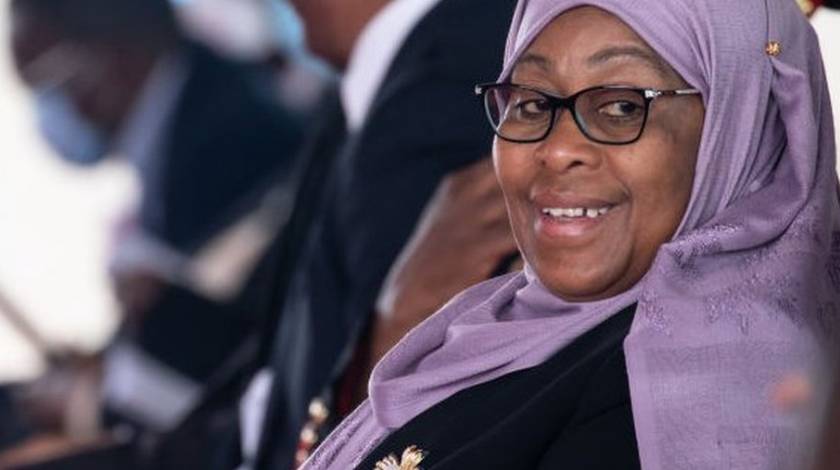Tanzania’s president Samia Suluhu on Wednesday assured citizens that the country is in a good economic situation, unlike some neighbours whom she did not name.
Suluhu, who spoke at a rally for International Women’s Day organised by an opposition party, said the country is more economically stable than any other East African state.
“My brothers and sisters, I want to tell you that Tanzania is doing well economically. In the entire East Africa region, we are better than other countries, let nobody lie to you. Right now, every country is complaining of dollar shortages while we have enough to last us four months,” said Suluhu.
She said Tanzania has been receiving requests from neighbours grappling with dollar shortages to guarantee their crude oil imports.
“Go to our neighbours, they do not have even a two-week supply. We are getting requests to guarantee their oil supplies but we have just been pretending that the situation is bad for us as well,” said the first female president of Kenya’s southern neighbour.
“We are doing well and our economy will be even stronger if we stay united.”
Kenya is among the countries currently battling an acute shortage of US dollars, which has been attributed to pressure from external debt repayments.
The demand for forex has recently skyrocketed as importers seek more dollars due to an increase in global prices of fuel, food products, cooking oil and steel, among others.
Data released by the Central Bank of Kenya (CBK) last week shows forex reserves dropped to $6.6 billion (Ksh.845.46 billion) on March 2 from $6.86 billion (Ksh.878.76 billion) on February 23.
And while CBK Governor Patrick Njoroge has constantly downplayed the shortage, this is 3.69 months of import cover, which is below the four-month set threshold.
There are fears of a looming countrywide fuel shortage and motorists have this week been turned away from select filling stations.
On Tuesday, a source at the Kenya Pipeline told Citizen Digital that there is no fuel shortage and the country still has enough reserves to last at least 16 days.
He attributed the apparent crunch affecting select filling stations to a dollar shortage that had left the outlets unable to purchase petroleum products.



